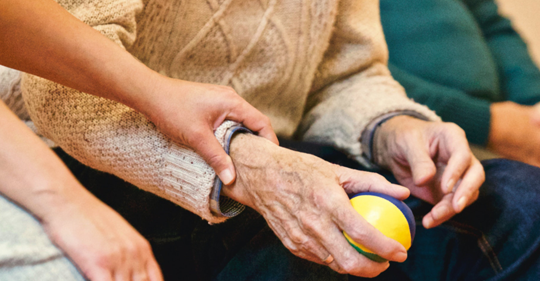Shoba Sreenivasan, Ph.D., and Linda E. Weinberger, Ph.D.

What, if anything, do you want to know when you ask this question?
What does it mean when you first see someone you know and say, “How are you?” Is it a greeting, like “hello”? Or are you actually interested in that person’s health? That depends on a number of factors:
- How well do you know this person?
- Are you just passing each other by, and you’re acknowledging them?
- Does the individual look ill or have a history of being ill?
- Do you know that there has been something troubling this person?
- Do you give the impression that you really want to know how this person is?
We have come to use this expression so often in all of the above situations that it may be difficult for others to know what our intentions are in asking the question.
Recently, we heard a story about a woman who works with a number of individuals who have very stressful jobs. She noticed that Mr. A was not looking well when he came into her office. She asked him, “How are you?” And he responded, “Fine, and you?” He gave the typical exchange of a greeting response, which really didn’t address the intent of her question. So, she asked again, “How are you?” emphasizing the “how.” She knew that he was very private and she didn’t want to intrude, but she also knew that he had been having some difficulties lately. She just wanted to let him know that someone was concerned about him. With this second inquiry, he seemed to get the point, and responded by disclosing a few details of his troubles and how he wasn’t feeling well. She listened and suggested that he consider going to a doctor to make sure he was okay. She also said that talking to someone might be helpful. He listened to her, said that he would think about it, and left after expressing a very appreciative “thank you.”
Many of us are private and reluctant to tell others about the issues that disturb us. Even when we go to the doctor, we might minimize or fail to mention problems we are having. But why? Are we afraid to be helped? Are we afraid to admit that we have problems? Do we believe that no one really cares about what we say? Are we afraid that our situation is hopeless, and we don’t want to have others confirm that?
Have you ever been in the following situation: Someone asks, “How are you?” and you answer, “Not well” or “Very sick” or something similar, and then the inquiring person responds, “Oh, that’s good,” and walks away. If this happened to you, why would you want to answer the question again from that person? Unfortunately, such scenarios occur frequently. Typically, they happen when the inquirer is not listening. This may be because they are too busy, too self-absorbed, or too afraid to intrude. Consequently, they don’t follow-up with appropriate questions or remarks, even to simply say, “I’m sorry to hear that.” And so you feel as if the inquirer really isn’t interested, which leaves you feeling sorry that you answered honestly.
Children, on the other hand, are curious, perceptive, and non-censoring. When they see someone who doesn’t look right, they’ll go right up to them and ask, “What’s wrong with you?” They want to know. They might not give good advice in response, but at least they care, and if they are old enough, they may demonstrate meaningful concern and sympathy.
We have become such a private culture that even our family and friends are often unwilling to ask us too many personal questions, or to answer them when we ask. So many of us feel reluctant to disclose too much about ourselves, particularly if it involves troubling issues. This may be due to possible repercussions:
- It would alter others’ perceptions of us.
- It may elicit pity or indifference from others.
- We may experience emotional pain when we recount our condition.
- The inquirer may be too busy or too self-absorbed to genuinely want a meaningful response, and so disclosing the information may belittle its importance.
- We may fear that the inquirer would violate our trust.
It’s a sad state of affairs when we live among others who could benefit from our care and concern, who are suffering in silence, and to whom we do not respond. Helping doesn’t only mean solving another person’s problems. We can help by demonstrating compassion and offering support and hope to others in need.
If we believe in “community,” we have to become a more empathic society. So, next time you see someone who doesn’t look good, ask them: “How are you? Really, how are you?” and be prepared to put on your “listener ears.” Simply acknowledging a person and listening to them may lift their spirits and condition, and remind them and you of the meaning and value of humanity.
Reference
https://www.psychologytoday.com/us/blog/emotional-nourishment/201704/how-are-you-really-how-are-you
